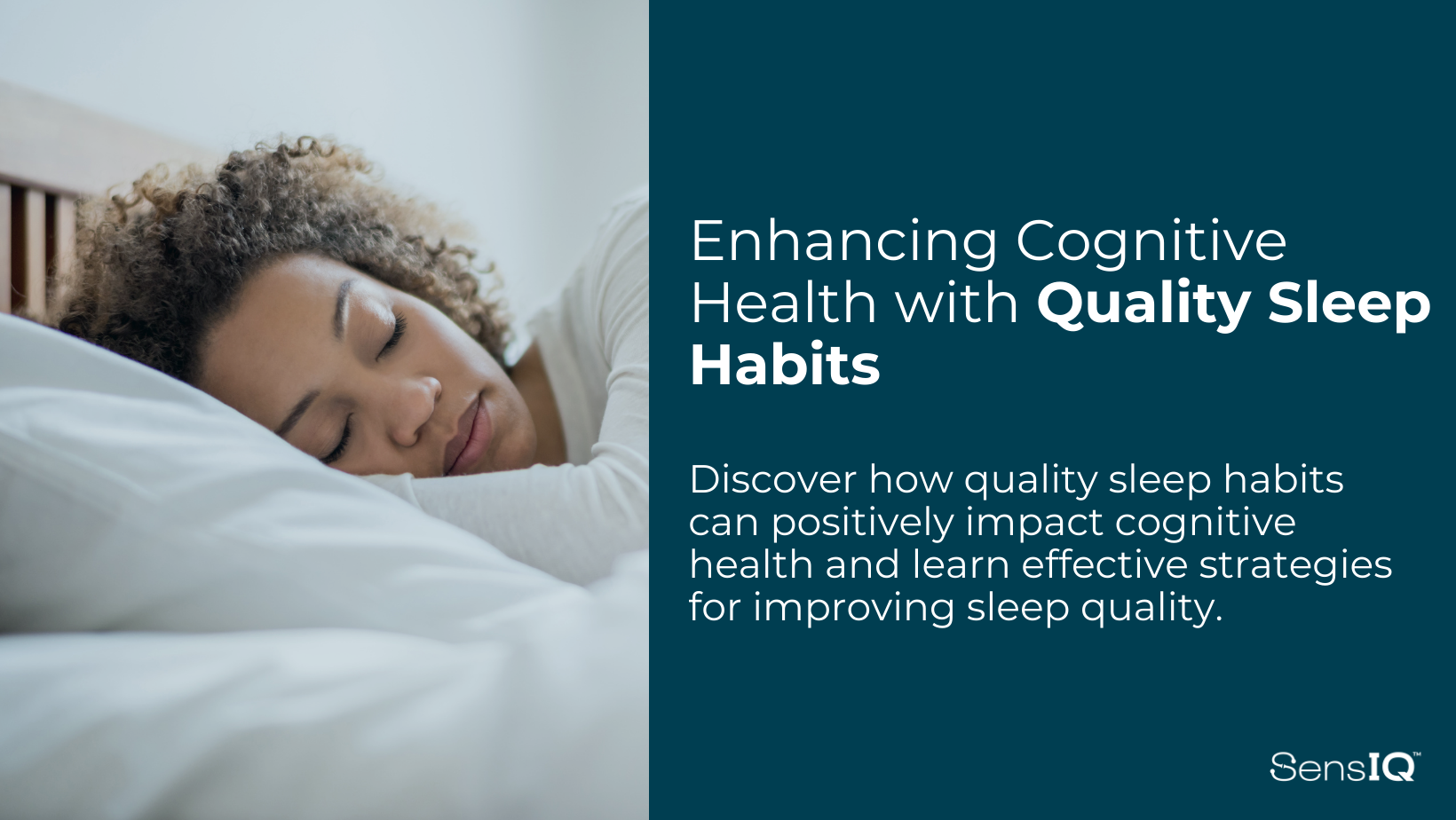Discover how quality sleep habits can positively impact cognitive health and learn effective strategies for improving sleep quality.
Understanding the Link Between Sleep and Cognitive Health
Quality sleep is essential for maintaining optimal cognitive health. Research has consistently shown that sufficient sleep is crucial for various cognitive functions, including attention, memory, and decision-making. During sleep, the brain processes and consolidates information, allowing for better learning and problem-solving abilities.
Sleep deprivation, on the other hand, can lead to cognitive impairment. Lack of sleep can result in difficulty concentrating, decreased alertness, and reduced cognitive flexibility. Additionally, chronic sleep deprivation has been associated with an increased risk of developing neurodegenerative diseases, such as Alzheimer’s disease.
Understanding the link between sleep and cognitive health is essential for promoting overall well-being and maximizing cognitive function.
Factors Affecting Sleep Quality and Cognitive Function
Several factors can influence both sleep quality and cognitive function. One of the primary factors is the sleep environment. Creating a comfortable and conducive sleep environment, including a quiet and dark room, can promote better sleep quality and enhance cognitive performance.
Another crucial factor is sleep duration. Most adults require between 7 to 9 hours of sleep per night to maintain optimal cognitive function. However, individual sleep needs may vary, and it is important to identify and meet your specific sleep requirements.
Additionally, lifestyle factors such as regular exercise, a balanced diet, and stress management can positively impact both sleep quality and cognitive function. Engaging in physical activity, consuming nutritious foods, and practicing relaxation techniques can contribute to better sleep and improved cognitive health.
Tips for Establishing Healthy Sleep Habits
To improve sleep quality and enhance cognitive health, consider implementing the following tips:
1. Maintain a consistent sleep schedule by going to bed and waking up at the same time every day, even on weekends.
2. Create a relaxing bedtime routine to signal your body and mind that it’s time to sleep. This can include activities such as reading a book, taking a warm bath, or practicing meditation.
3. Ensure your sleep environment is comfortable, quiet, and dark. Use curtains, earplugs, or white noise machines to block out any disturbances.
4. Limit exposure to electronic devices, particularly before bedtime. The blue light emitted by screens can disrupt the production of the sleep hormone melatonin.
5. Avoid consuming stimulants such as caffeine and nicotine close to bedtime, as they can interfere with sleep quality.
By incorporating these healthy sleep habits into your routine, you can improve the quality and duration of your sleep, leading to enhanced cognitive performance.
The Impact of Sleep Disorders on Cognitive Health
Sleep disorders can significantly affect cognitive health. Conditions such as insomnia, sleep apnea, and restless leg syndrome can disrupt sleep quality and quantity, leading to cognitive impairment.
Insomnia, characterized by difficulty falling asleep or staying asleep, can result in daytime fatigue, decreased alertness, and impaired cognitive function. Sleep apnea, a condition where breathing repeatedly stops and starts during sleep, can cause excessive daytime sleepiness, memory problems, and poor concentration.
Restless leg syndrome, a neurological disorder that causes an irresistible urge to move the legs, can disrupt sleep and negatively impact cognitive abilities. These sleep disorders can have a profound effect on cognitive health and overall well-being.
If you suspect you have a sleep disorder, it is important to consult with a healthcare professional for proper diagnosis and treatment.
Incorporating Mindfulness and Relaxation Techniques for Better Sleep
Mindfulness and relaxation techniques can be effective strategies for improving sleep quality and promoting cognitive health.
Practicing mindfulness involves paying attention to the present moment without judgment. This can be achieved through techniques such as deep breathing, meditation, or body scan exercises. Mindfulness can help calm the mind, reduce stress, and promote relaxation, making it easier to fall asleep and maintain sleep throughout the night.
Relaxation techniques, such as progressive muscle relaxation or guided imagery, can also be beneficial for improving sleep quality. These techniques help relax the body and mind, releasing tension and promoting a sense of calmness that is conducive to sleep.
Incorporating mindfulness and relaxation techniques into your bedtime routine can contribute to better sleep and improved cognitive function.
Understanding and prioritizing sleep is crucial for maintaining cognitive health
To further support this, SensIQ offers StressEase, a specially formulated supplement designed to enhance relaxation and promote restful sleep. Recently endorsed by the Menopause Association as the best product to help insomnia. StressEase contains natural ingredients known for their calming properties, making it an ideal addition to your nightly routine. By combining healthy sleep habits with StressEase, you can significantly improve your sleep quality and, in turn, boost your cognitive function.
Take the first step towards better sleep and sharper cognitive health with SensIQ StressEase. Experience the difference it can make in your life. Get a free sample of StressEase Now and unlock the potential of a well-rested mind.

